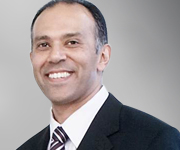DOCTORS are losing their monopoly on specialist knowledge, so is it time to reinvent the doctor?
With more than 15 million Australians directly affected by at least one chronic disease in an ageing demographic, significant changes in the way health care is delivered in the future are essential.
There has been a seismic shift in the lives of people because of technology. People are far better informed than they were in the 1980s and 1990s. Much of this information is available through the media but even more is available and archived on the internet.
The forces pushing the internet into health and health care are strong and unstoppable, ensuring that the internet and the choices it offers must be part of the design of our future health care system.
We are no longer content to wait in queues as we live at a faster pace than earlier generations — we don’t have time to wait for appointments months, weeks or even days in advance.
Today, people can do their banking at home, order groceries on the internet, and buy tickets to the next show at the cinema at the same time as booking an overseas holiday. If you don’t have to wait more than 15 minutes before a hairdresser can cut your hair why should you have to wait a week before someone can check your blood pressure or perform a vasectomy?
The internet offers the prospect of online consultations in the comfort of your own home. The physical examination will change as new devices are developed to allow the necessary sounds and signals emitted by our malfunctioning bodies to be recorded, interpreted and captured at a remote location.
Meanwhile, for those who prefer to see a health care practitioner in person, the options to consult practitioners other than doctors who can advise on our health are expanding.
The reality is we can’t afford to train or pay for all the doctors we need under the current “doctor-knows-best” system of health care. Patients no longer believe this rhetoric and are already voting with their feet. Pharmacists, nurses and other allied health professionals are beginning to play a much greater role in offering relief from symptoms and in the monitoring of chronic diseases.
Of course, the doctor of the future will still need to offer face-to-face consultations to some people most of the time or most people some of the time. The social role doctors play will continue to be important as humans will always need other humans to personally respond to their distress.
Therefore, the relentless erosion of the amount of time medical practitioners spend with patients who do attend for consultation must be stopped and reversed.
However, this will only become possible when we acknowledge that much of the time now taken up by so-called health promotion in medical consultations is wasted. It is claimed for instance that smokers who consult doctors about their cough are likely to stop smoking in significant numbers if the practitioner advises them to quit.
There is much less evidence to support so-called opportunistic preventive advice, such as when an obese person consulting about an unrelated condition is asked to lose weight, for the “sake of his health”.
As doctors reinvent themselves, the internet and the value of time spent with patients will be the driving forces that move us into a more sustainable future in health care.
Professor Moyez Jiwa is professor of health innovation at Curtin University in Perth, WA.
Posted 25 July 2011

 more_vert
more_vert